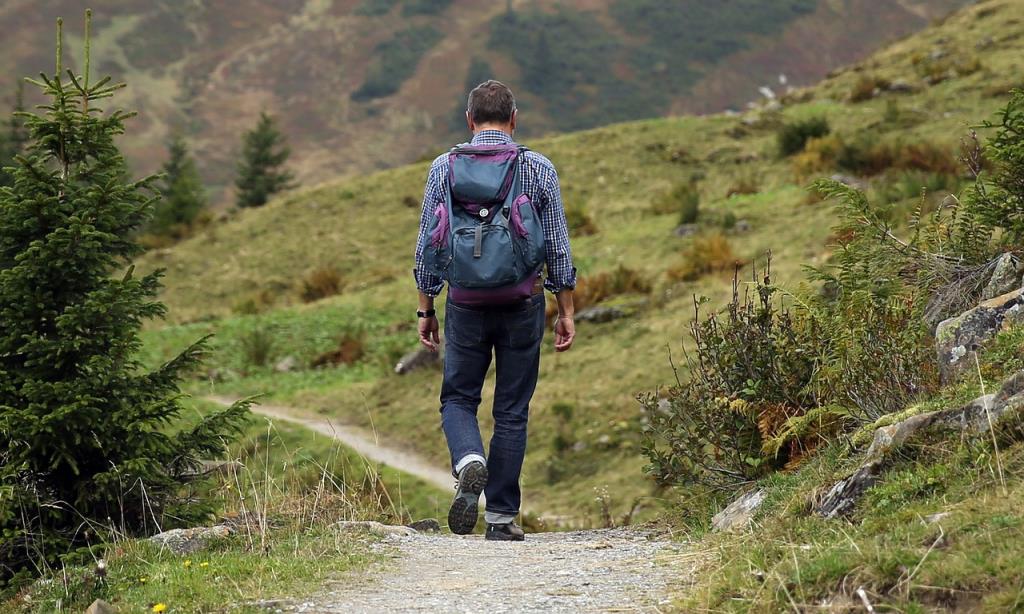
Whether you’re an experienced outdoors enthusiast or planning your first camping trip, having the right equipment and supplies can make all the difference between an amazing adventure and a miserable experience. This article covers the essential hiking and camping gear you should consider to ensure a safe, comfortable, and enjoyable excursion into the great outdoors.
Sturdy And Supportive Footwear
When hiking or camping, your footwear is one of the most important gear choices. Look for waterproof or water-resistant hiking boots or shoes with sturdy construction, ankle support, and rugged tread. Break them in ahead of time to prevent blisters. Lightweight trail runners are fine for short day hikes. Pack an extra pair of comfortable camp shoes too. Proper footwear prevents injury and keeps your feet comfortable over long distances.
Weather Appropriate Clothing
One of the keys to staying comfortable while hiking and camping is dressing in layers so you can adjust to changing temperatures and weather conditions. Begin with moisture-wicking base layers to pull sweat away from your skin. Then add insulating mid-layers like fleece or synthetic insulated jackets. Finish with a fully waterproof and breathable outer shell to block wind and rain. Bring extra layers to stay warm at night when temperatures drop. Look for clothes made from quick-dry, compressible fabrics that pack down small. Do not forget to pack rain gear, even when the forecast does not predict rain. When venturing into the outdoors, it is always wise to be prepared for unexpected changes in weather and conditions.
Hydration And Nutrition
Staying hydrated and fueled is crucial when exerting energy outdoors. Carry plenty of water in lightweight bottles or a reservoir hydration pack. Pack high-energy, lightweight trail snacks like protein bars, nuts, dried fruit, or jerky. Plan nourishing camp meals with freeze-dried or dehydrated ingredients that just need boiling water. Precooked rice, pasta, or quinoa at home for quick dinners.
First Aid Kit
A well-stocked first aid kit is a must-have. Include bandages, gauze, antibiotic ointment, antiseptic wipes, pain medication, blister care, tweezers, trauma shears, and anything else you might need for minor injuries and ailments. Know how to treat sprains, cuts, burns, rashes, and altitude sickness. An emergency blanket, whistle, and signal mirror are good additions too.
Navigation Tools
Stay found with the right navigation essentials. Carry a detailed trail map of the area and a compass to orient yourself if you get turned around. A GPS device or app is very helpful too. Know how to use them. Share your route with someone before departing. Consider a satellite communication device for emergencies. Even when trails are marked, it’s easy to lose your way. Don’t rely solely on your phone’s map.
Shelter System
A tent or lean-to-style shelter provides protection from the elements. Look for durable, lightweight backpacking tents. The packaging should list details on capacity, weight, poles, etc. Footprints protect tent floors. Also, carry a sleeping bag suitable for the weather and a sleeping pad for comfort and insulation. Compression sacks minimize size. For car camping, consider roomier cabin tents and cots.
Cooking Gear
You’ll need a camp stove, fuel, pots, utensils, plates, and cups. Backpackers should opt for lightweight, compact stoves. Canister fuel stoves are easy to use. Car campers benefit from propane grills, Dutch ovens, and camp kitchens. Consider a solar oven alternative too. Don’t forget biodegradable soap, sponges, trash bags, paper towels, aluminum foil, resealable bags, and other cooking essentials. Wash hands carefully.
Lighting
Bright headlamps allow for hands-free light at night. Pack extra batteries! Lanterns illuminate the campsite. Solar-powered or crank lights conserve batteries. For hiking, trekking poles with built-in LED lights come in handy. Glow sticks help identify guy lines and tent zippers after dark. Carry fire-starting supplies even if campfires aren’t allowed as an emergency backup.
Proper Backpacks or Bags
Backpack properly so weight is evenly distributed and your hands are free. Look for backpacks with waist and chest straps, padded backing, and compartments to organize gear. Waterproof pack covers or bags keep contents dry. Duffel bags work for car camping. Use packing cubes, stuff sacks, or plastic bags to stay organized. Keep essentials handy in your pockets. Take time to pack wisely and balance weight.
Insect Protection
Defend yourself against mosquitoes, ticks, and other pests. Apply insect repellent that contains DEET, IR3535, picaridin, or oil of lemon eucalyptus. Treat clothes, tents, and gear with permethrin. Wear long sleeves and pants at dawn and dusk when insects are active. Do tick checks after hiking. Keep bugs away from food and living quarters. Be prepared to manage reactions to stings, bites, or rashes.
The post The Ten Essentials For Hiking & Camping appeared first on Travel Experta - Travel, Lifestyle, Freedom.
------------------------------------------
By: Marina 'Travel Experta'
Title: The Ten Essentials For Hiking & Camping
Sourced From: travelexperta.com/the-ten-essentials-for-hiking-camping/
Published Date: Thu, 03 Aug 2023 21:20:48 +0000
Did you miss our previous article...
https://consumernewsnetwork.com/travel-news/cruises-are-fun






